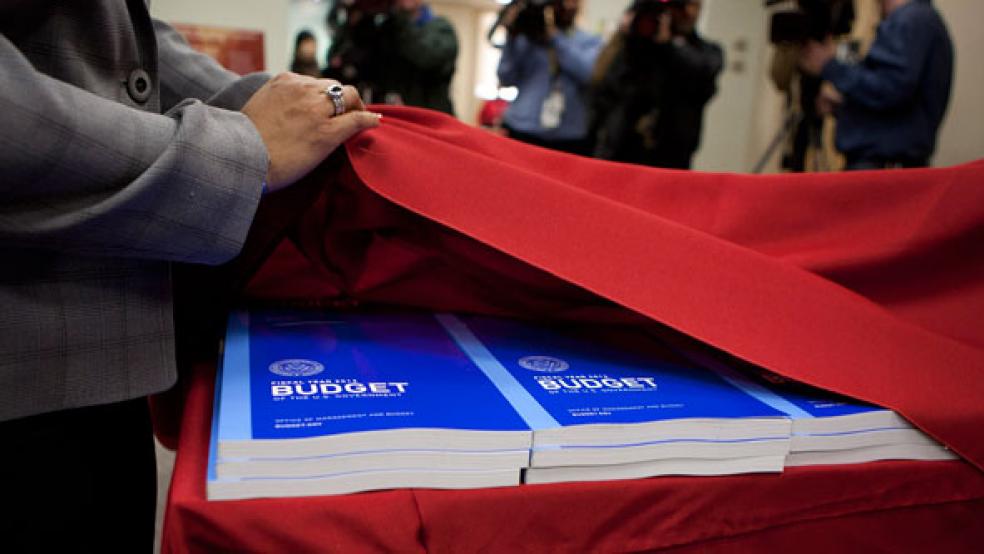The U.S. is on course to top its record debt levels set after World War II, and permanent trillion-dollar deficits — meaning, forever — are likely to return within two years. And unlike after World War II, our debt is projected to keep rising after it hits a new record; meanwhile, we may see deficits in excess of $2 trillion in just 10 years.
How did we get here? Decades of gimmicks and tricks used by budget-writing wizards have allowed politicians to disguise unrestrained deficit spending. They have duped the American public and disadvantaged American children, who will pick up the tab.
Hope for reversing our current fiscal fate may rest with a special joint select committee on budget process reform that just began to meet. This congressional committee has received very little attention but has a very large task: to reform the budget and appropriations process in a bipartisan way so that it is orderly, disciplined, transparent, responsible and focused on setting national priorities. To meet these goals, the committee should make changes to prevent and limit the use of budget gimmicks.
Budget gimmicks are simply cheats — they allow lawmakers to take credit for mythical savings that will not materialize and to circumvent important rules requiring new spending or tax cuts to be paid for.
Recently, the Committee for a Responsible Federal Budget published a report on 20 of the most prevalent and egregious budget gimmicks.
Some of these involve making unrealistic assumptions. For example, President Trump’s most recent budget assumes the U.S. economy will grow at 3 percent a year for the next decade, even though there is near-universal agreement that the actual growth rate will be closer to 2 percent. Yet this extra point of growth allows the president to claim more revenue and to tout a budget where debt appears to be declining when it is actually rising rapidly.
As another example, President Obama’s fiscal 2012 budget assumed almost $650 billion of deficit reduction from unspecified “magic asterisks” — where budget savings are claimed seemingly in whatever amount is needed despite no supporting policy behind them.
Other types of gimmicks focus on manipulating the 10-year scoring window. To make legislation seem cheaper, policymakers will often use some sleight of hand to move costs and savings around like a shell game. Future savings can be moved to the present; costs can be hidden just beyond the budget window; and a meaningless expiration can solve any deficit. A prime example appeared in the recently enacted Tax Cuts and Jobs Act, which proposed a number of its tax cuts would end abruptly after eight years in order to keep the bill’s on-paper 10-year cost under the agreed-upon $1.5 trillion.
A third type of gimmick involves breaching or circumventing current caps on the amount of money appropriators can spend each year. Policymakers will often count ordinary spending as emergency war spending, use phantom cuts in mandatory spending to finance real increases in discretionary spending or manipulate future caps in order to paint a misleading picture of the nation’s fiscal outlook. For example, last month’s omnibus appropriations bill actually spent $17 billion more on non-defense agencies than the law intended to allow. To cover up this difference, lawmakers used an arcane process known as CHIMPs — changes in mandatory programs — to create the illusion of $17.5 billion in mandatory spending cuts, even though only $500 million of those cuts will actually materialize (read more on that here).
Taken together, these gimmicks blow up the deficit, undermine the budget process and mislead the American public. If a corporation budgeted like Congress does, it would be out of business and its executives and accountants would be in jail. It’s time to put a stop to these dishonest budget practices.
Luckily, there are many changes Congress can make to prevent budget gimmicks. By empowering scorekeepers, improving transparency, tightening enforcement and expanding focus on the long term, the budget process reform committee can make it harder for lawmakers to evade fiscal responsibility.
Of course, what really matters in the end is political will. Gimmicks are attractive because they offer lawmakers an easy way out — an opportunity to create the appearance that they are paying for their priorities and keeping the budget on track, without actually having to make the hard choices necessary to do so.
As long as lawmakers care more about political scores than CBO scores, they will find workarounds to whatever rules we give them. But in an era of historic debt, we should bring more transparency to the process and make this cheating harder, and it might nudge lawmakers to do the right thing.
Marc Goldwein is senior vice president and director of policy at the Committee for a Responsible Federal Budget (CRFB). Zach Moller is a senior policy analyst at CRFB.





